
A beautiful city filled with parks, lakes and pagodas and shaped by periods of occupation by both the Chinese and the French, Vietnam’s fast-paced, frenetic capital has a rich history, a fantastic food scene and plenty of green space for when the honking scooters get too much.
Whether you’re keen to gain a deeper insight into Vietnam, with visits to Hanoi’s historic sites – such as the Ho Chi Minh Mausoleum, the final resting place of the man referred to as “Uncle Ho” – or fancy tantalising your tastebuds by delving into its fantastic food scene (a banh mi sandwich is a great place to start), no trip to Vietnam is complete without a visit to this colourful city.
Here are the stops to put at the top of your list.
What to do
Take in the temples
You (literally) can’t visit Hanoi without checking out its temples – there are hundreds of them, in all shapes and sizes. The Ngoc Son Temple, on a tiny island at the northern end of Hoan Kiem Lake, is one of the most photographed. It’s connected to the lakeside by a bright red bridge. The Trấn Quốc Pagoda, on the southern shore of Hanoi’s West Lake, dates back to the sixth century and is one of the oldest Buddhist temples in Vietnam.
One of Trấn Quốc’s USPs is its collection of bonsai trees, lovingly maintained by the resident monks. But don’t miss the display boards explaining the concept of karma, with no-holds-barred depictions of the consequences associated with certain actions. For example, the karmic payback for “thinking ill of others” – “a stroke or loss of memory” – is illustrated by an image of a woman who appears to have turned into a zombie.
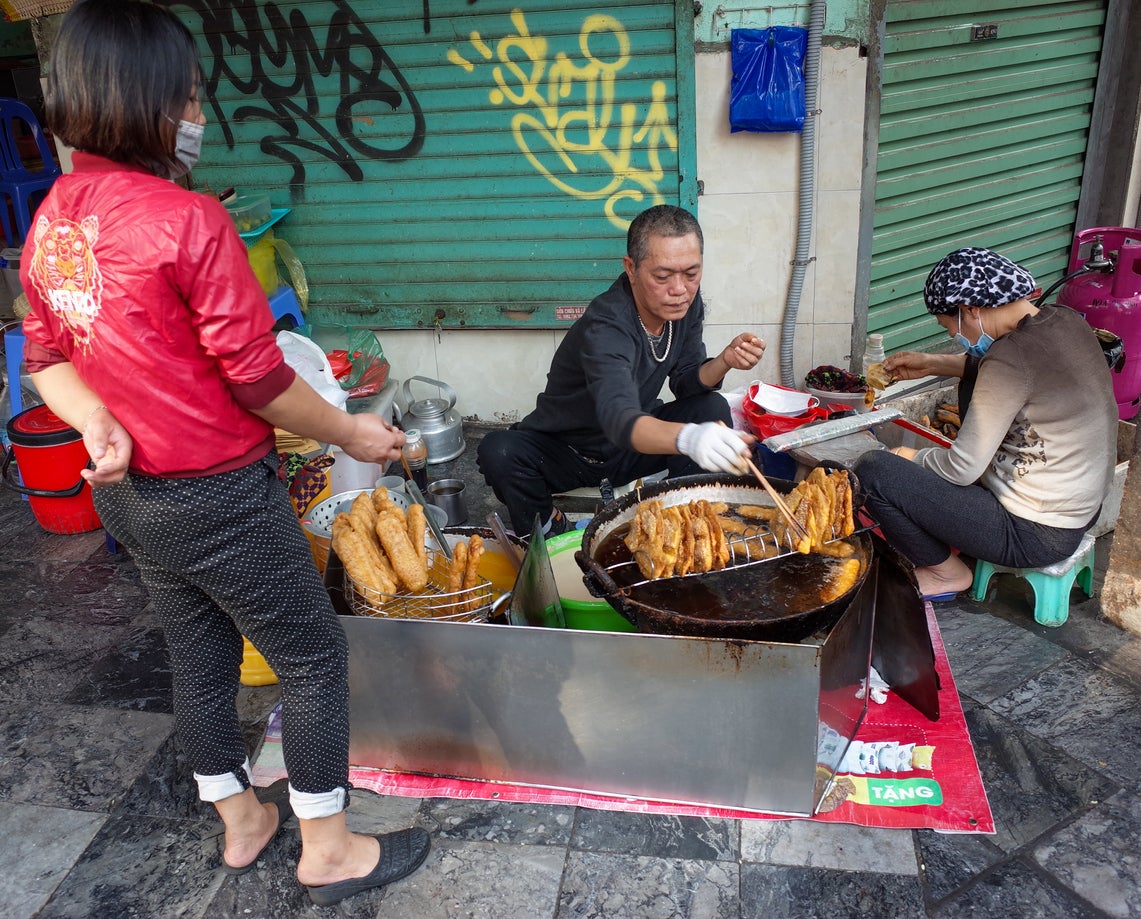
Dip a toe into the lake
A wander around Trúc Bach Lake is a fantastic way to get a feel for the city. This is where locals come to relax. Fancy taking to the water? Hop in one of nearby West Lake’s swan-shaped pleasure boats – the pick-up point is next to the Highlands Coffee shop on the lake’s eastern shore.
Museums and mausoleums
The sheer opulence of former leader Ho Chi Minh’s Mausoleum is staggering. You can even see the man himself, albeit encased in a glass sarcophagus and surrounded by guards. Every September his body is sent to Russia for a month to have his embalming fluid topped up. In addition to the mausoleum, there’s the fascinating Ho Chi Minh Museum, one of the largest museums in Vietnam. Exhibits include everything from propaganda posters to war relics, such as parts of a B52 fighter plane shot down during the war (and a comb made by soldiers using parts of said B52 plane). Don’t miss the collection of items once owned by Ho Chi Minh – such as his typewriter and the pen he used to sign the Paris treaty.
Finally, don’t forget to take in a water puppetry show (a traditional Vietnamese art form) at the Thang Long Water Puppet Theatre. We won’t spoil the surprise, but it’s amazing – the stage is a large pool of water and there are water-spitting dragons, fireworks and a soundtrack of traditional Vietnamese music, played by a band to the side of the stage.
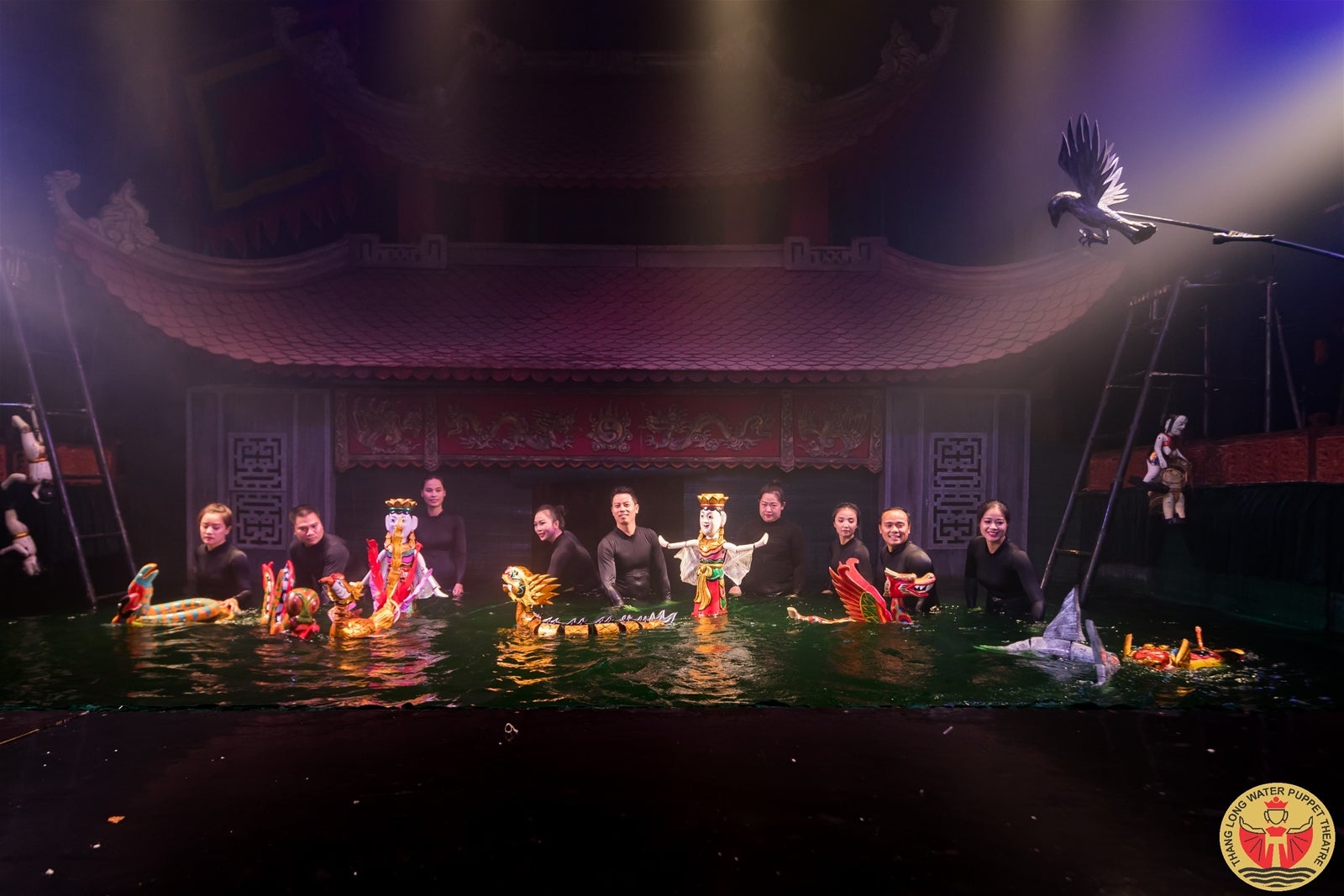
Where to stay
One of the city’s grandest hotels is the Pan Pacific Hanoi, a five-star property metres from Hanoi’s West Lake (hence the stunning views). Its lakeside position means easy access to the Trấn Quốc Pagoda and Thanh Nien Street, a tree-lined boulevard that divides West Lake and Trúc Bach Lake. Make sure you squeeze in a sundowner at the Summit, the hotel’s stunning rooftop bar. Doubles from £127, B&B. panpacific.com
Another great option is the antique-filled La Siesta Premium Hang Be, which opened in 2019 in the city’s Old Quarter, on a street where wooden boats were once traded. This gorgeous boutique hotel has a fantastic spa and a sky bar, too. Doubles from £115, B&B. lasiestahotels.vn
Where to eat
Top of your list should be 4Ps Pizza on Hoan Kiem District’s Bao Khanh Alley. Yes, it’s a pizzeria, but its doughy delights are regarded as the best in Hanoi – and with good reason. You can choose to top your pizza with a wide range of cheeses, all of which are made at the restaurant’s very own cheese factory in Dalat. If possible, nab a seat upstairs (orders are placed by iPad so you won’t be forgotten), where you’ll get a great view of the kitchen and its army of chefs, who accessorise their obligatory face masks with rather funky flat caps.
For something more traditional, head to Cau Go Restaurant, which you’ll find on the top floor of a historic building in the Old Quarter. The menus are printed on Vietnamese dó paper, made from the tree of the same name and associated with folk art, while the elegant interior has the feel of a traditional Vietnamese home, complete with wooden shutters and elegant Delft-like floor tiles. Request a table on the balcony for panoramic views over Hoàn Kiem Lake. Highlights include the enormous wine list and the seafood – we recommend the pan-fried pork and mushroom-stuffed calamari.
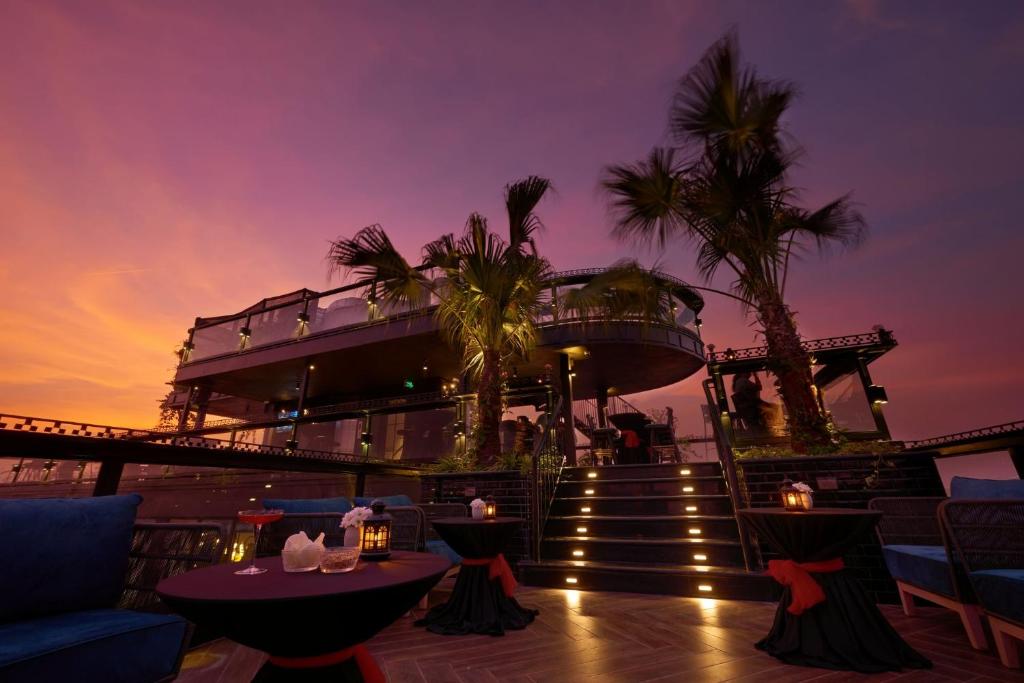
Where to drink
Hanoi’s home to several speakeasies, and one of the best is Kumquat Tree at 1 Nguyễn Khắc Cần, near the city’s opera house. You’ll need a password to get inside (contact the bar using the details on its Facebook page to get one), but the fantastic cocktails and gorgeous decor make it worth the effort. Inside, find a beautiful mash-up of artfully exposed brickwork and Ming dynasty-style vases.
There’s also Train Street, a bar-lined stretch of railway in the Old Quarter. Once a rather neglected neighbourhood, eventually this area’s residents capitalised on tourists’ amazement at passing trains, opening bars, cafes and restaurants inside their track-side homes. When the trains pass, tables and chairs are moved aside and patrons must stand against the wall.
Even the local laundry now has a bar. Or had – in late September 2019 a handful of near-misses involving unscrupulous selfie-takers led to the closure of these businesses. But it’s still worthy of a mention – hopefully these venues will reopen soon and, despite its touristy nature, there are some brilliant bars here.
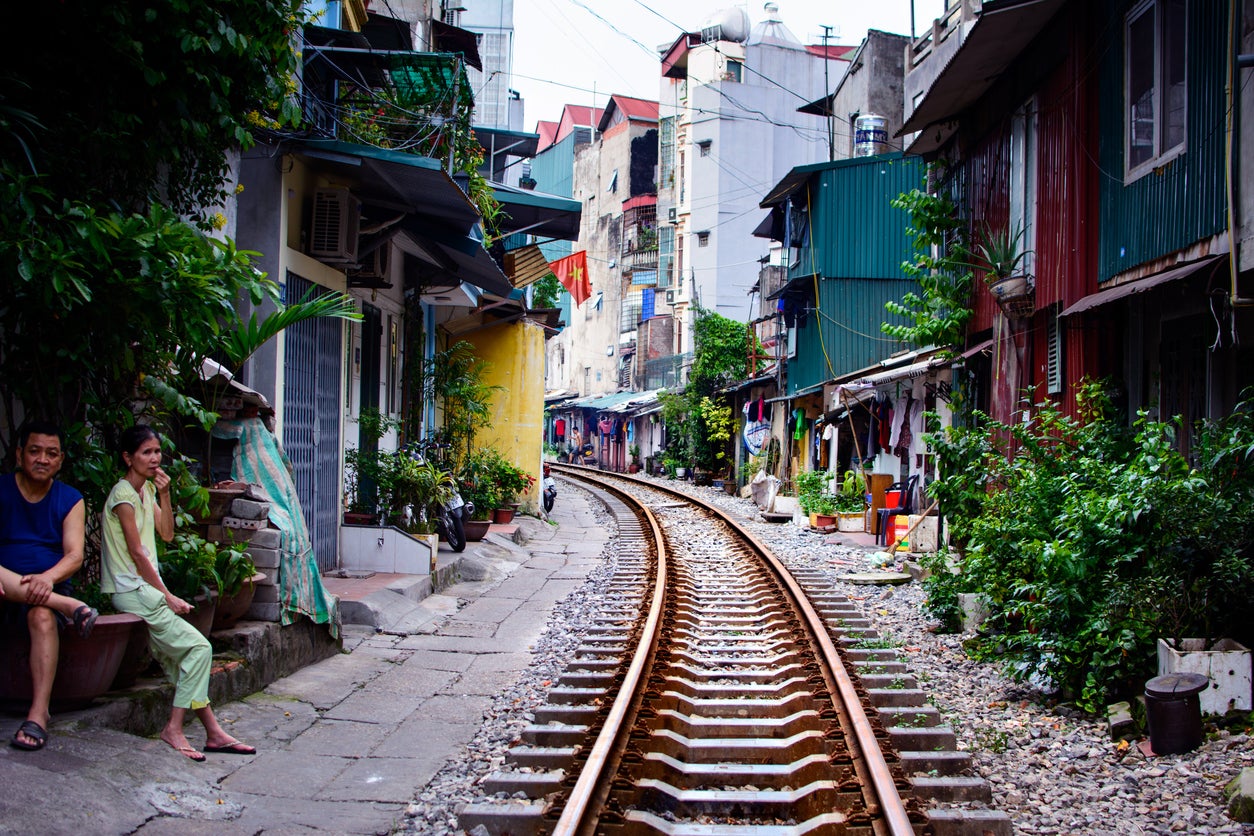
Where to shop
The award for Hanoi’s most beautiful store goes to Hoàn Kiếm District’s Vui Studio, a beautiful boutique famous for its range of home fragrance products, all of which are inspired by Hanoi’s seasons.
Some other bargains can be found on streets dedicated to certain industries, such as Hang Gai Street (“silk street”) and Hang Bac Street (“silver street”).
In the market for some art? Thang Long Art Gallery on Hang Gai Street specialises in work by Vietnamese artists, while Old Propaganda Posters on Hang Bac Street provides exactly what it says on the tin.
Nuts and bolts
What currency do I need?
Vietnamese Dong (VND).
What language do they speak?
Vietnamese.
Should I tip?
Between 5 and 10 per cent for meals.
What’s the time difference?
Hanoi is seven hours ahead of the UK.
How should I get around?
Uber is the cheapest mode of transport here, unless you fancy braving the xe om (motorbike taxis). Drivers speak little English, so be prepared to use Google translate, or have the name of your hotel or destination written out in Vietnamese.
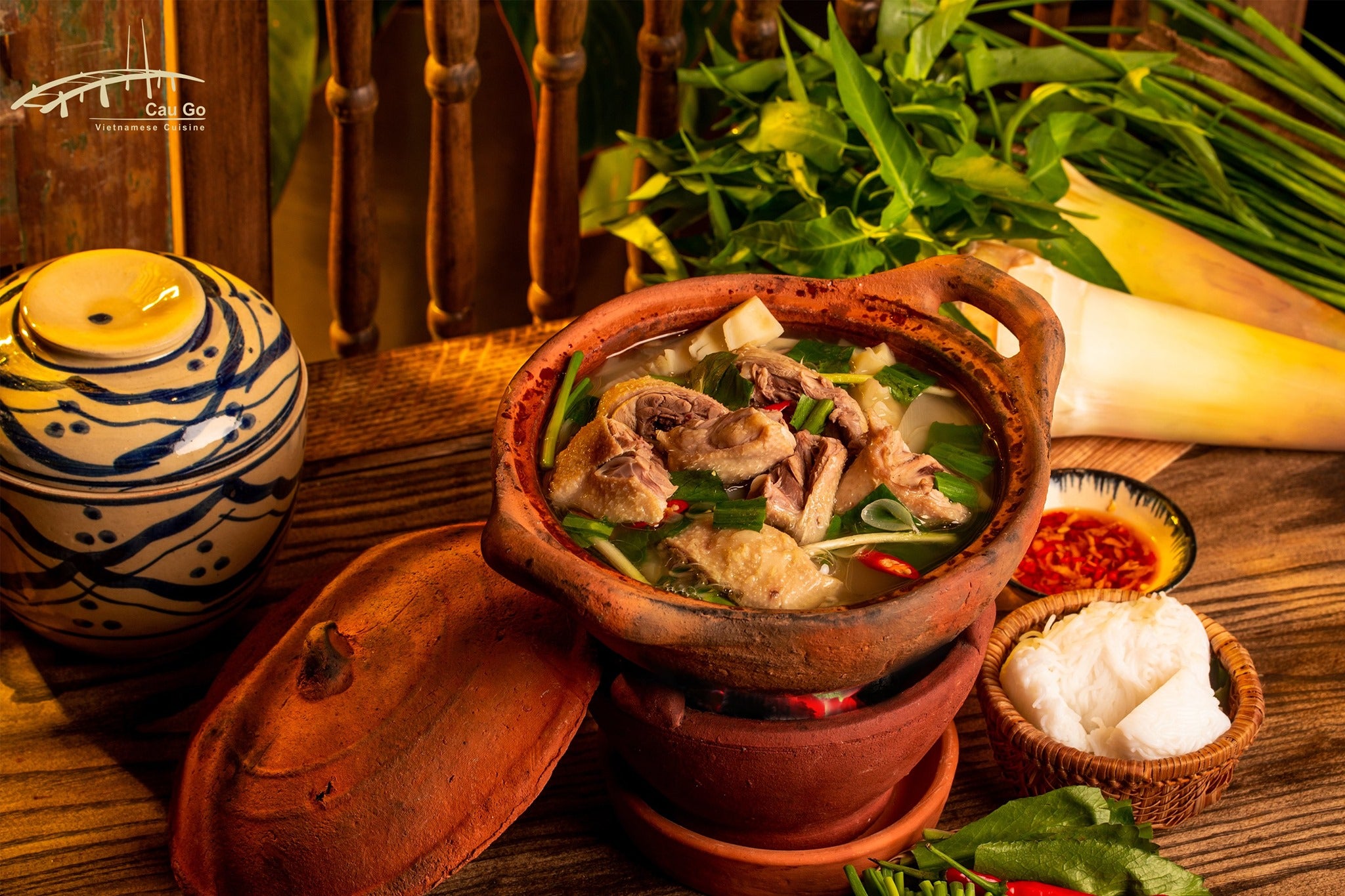
Insider tip
The city’s parks are great places to hang out around dusk. They are where many workers (mainly businessmen) head for post-work games of badminton, which is incredibly popular here. Many parks have designated courts but the game is often played on makeshift ones, complete with hastily erected nets. It’s impossible not to be drawn in, and you might even be invited to have a go yourself.
Getting there
Trying to fly less?
Getting into France by train, you could travel by cargo ship from Le Havre in France to Singapore, then take the train to Bangkok (via Kuala Lumpur and Penang in Malaysia), followed by a train and a bus northeast to Hanoi. Western Europe is set to be linked by rail to Southeast Asia thanks to a recent new Chinese-built train link through Laos – but the route involves going through Russia (which the Foreign Office is advising against all travel to) for the Trans-Siberian railway to China (not currently open to Brits).
Fine with flying?
Vietnam Airlines and Bamboo Airways fly direct to Hanoi from London; or try connecting flights with the likes of British Airways, Qatar or Thai Airways.







